Detoxification
Drug Abuse Prevention
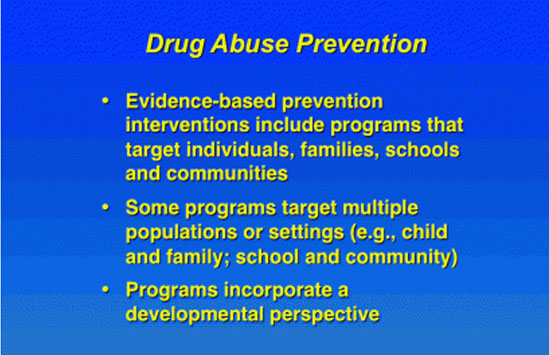
Evidence-based prevention programs target individuals, families, schools, communities, or multiple targets.
Evidence-based drug abuse prevention programs often incorporate a developmental perspective.
Family-Focused Prevention Programs
Family-focused prevention programs target parents or the families, taking into consideration the stage of the child’s development. Programs may provide training on effective parenting skills and monitoring to help reduce conduct problems and other risk factors for drug abuse, and improve parent-child communication and relationships.
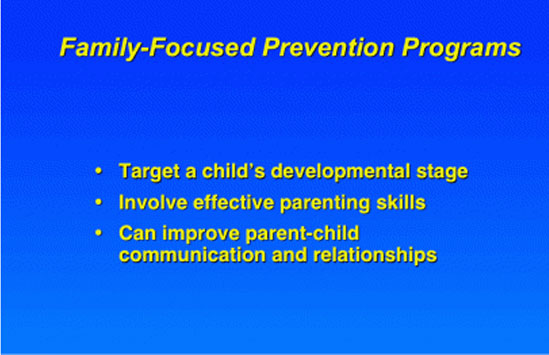
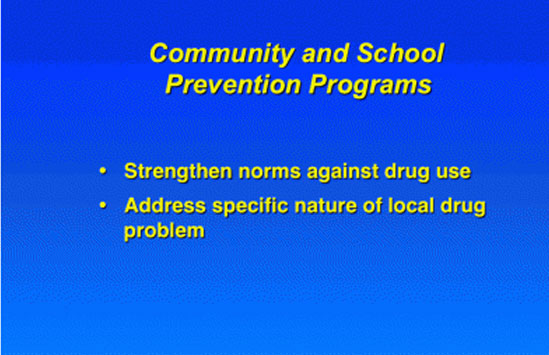
Community and School Prevention Programs
Community programs that include media campaigns and policy changes, such as new regulations that restrict access to alcohol, tobacco, or other drugs, are more effective when they are accompanied by school or family interventions. Community programs need to strengthen norms against drug use in all drug abuse prevention settings, including the family and the school. In addition, prevention programming should be adapted to address the specific nature of the drug abuse problem in the local community.
Principles of drug addiction treatment
Three decades of scientific research and clinical practice have yielded a variety of effective approaches to drug addiction treatment. In April 1998, NIDA held The National Conference on Drug Addiction Treatment: From Research to Practice which summarized this extensive body of research. Based on the findings reported at this conference, NIDA published in October 1999, Principles of Drug Addiction Treatment: A Research-Based Guide to foster more widespread use of scientifically-based components of drug addiction treatment. Key components of this guide are highlighted in the following images.
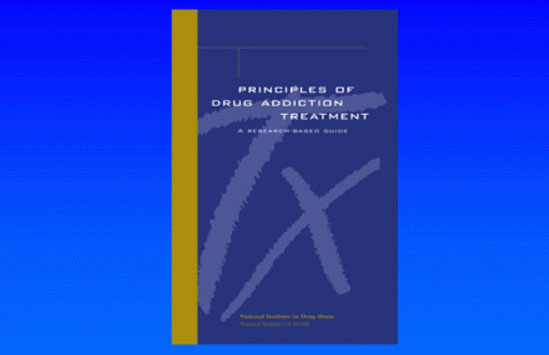
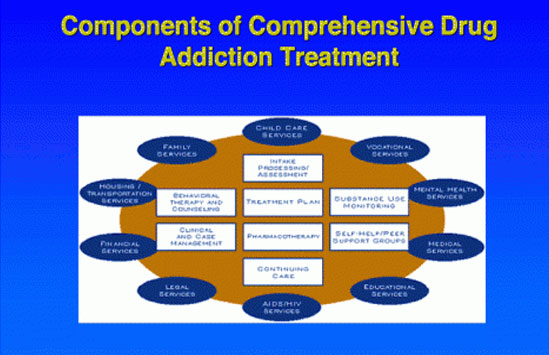
Components of comprehensive drug addiction treatment
A variety of scientifically-based approaches to drug addiction treatment exist. Drug addiction treatment can include behavioral therapy (e.g., counseling, cognitive therapy, or psychotherapy), medications, or their combination. Case management and referral to other medical, psychological, and social services are crucial components of treatment for many people as well. The best programs provide a combination of therapies and other services to meet the needs of the individual patient, which are shaped by such issues as age, race, culture, sexual orientation, gender, pregnancy, parenting, housing, and employment, as well as physical and sexual abuse.
Several of the key principles underlying this approach to treatment follow.
Matching patients to individual needs
No single treatment is appropriate for all individuals. Matching treatment setting, interventions, and services to each individual's particular problems and needs is critical to his or her ultimate success in returning to productive functioning in the family, workplace, and society.
Effective treatment attends to multiple needs of the individual, not just his or her drug use. To be effective, treatment must address the individual's drug use and any associated medical, psychological, social, vocational, and legal problems.
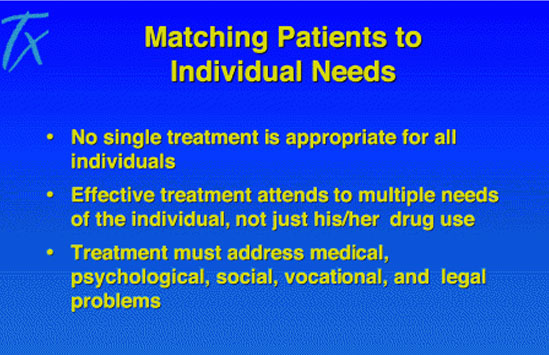
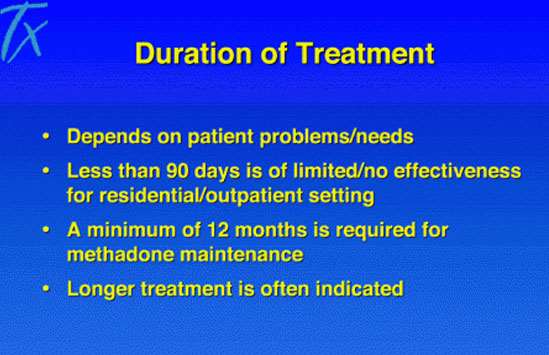
Duration of treatment
Individuals progress through drug addiction treatment at various speeds, so there is no predetermined length of treatment. However, research has shown unequivocally that good outcomes are contingent on adequate lengths of treatment. Generally, for residential or outpatient treatment, participation for less than 90 days is of limited or no effectiveness, and treatments lasting significantly longer often are indicated. For methadone maintenance, 12 months of treatment is the minimum, and some opiate-addicted individuals will continue to benefit from methadone maintenance treatment over a period of years.